Welcome to the September 2015 issue of the Global Washington newsletter.
IN THIS ISSUE
- Letter from our Executive Director
- Question of the Month
- In the News: Washington State Organizations Play Leading Role in India
- Featured Organization: SightLife
- Changemaker: Chris Jochnick, President & CEO, Landesa
- Welcome New Members
- GlobalWA Member Events
- Career Center
- GlobalWA Events
Letter from our Executive Director
India is often called a country of paradoxes. The largest democracy in the world is home to 1.21 billion people, and can be incredibly chaotic and thriving at the same time. There are 22 Indians who rank in the top 500 richest people in the world alongside 300 million people who live in extreme poverty on $1.25 per day. India has some of the world’s most successful tech centers, yet is home to the world’s largest illiterate population of 287 million people. While great strides have been made to reduce poverty, India still faces complex challenges. A number of Global Washington members are working to improve conditions for the country’s poorest citizens.
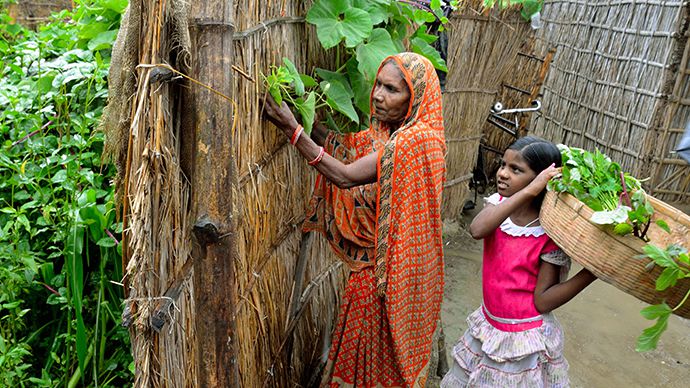
Landesa is assisting India’s 15 million landless families obtain ownership of small plots of land. And SightLife has partnered with health organizations in India to provide corneal transplants for the blind so that they may live full, productive lives. Other GlobalWA members such as Upaya Social Ventures, Unitus Seed Fund and Grameen are improving livelihoods through economic development.
To join the conversation around creating innovative solutions to global poverty in India and around the world, come to our 7th Annual Conference this December as we focus on Disruptive Development and feature a packed agenda of peer learning opportunities, provocative speakers and networking with 400 leaders in the international development field. Early bird registration ends September 30 — sign up today!

Kristen Dailey
Executive Director
Question of the Month
![]() GlobalWA will ask you a question every month and synthesize the responses and make available to our member organizations. Please take a moment to respond to the question for this month:
GlobalWA will ask you a question every month and synthesize the responses and make available to our member organizations. Please take a moment to respond to the question for this month:
1. Are you a leader of a nonprofit GlobalWA member organization and interested in telling your organization’s story at GlobalWA’s 7th Annual Conference on December 10?
2. The theme of this year’s conference is Disruptive Development. Does your organization have a “disruptive” approach to improving lives in developing countries?
In the News
Washington State Organizations Play Leading Role in India
By Sydney Martinez
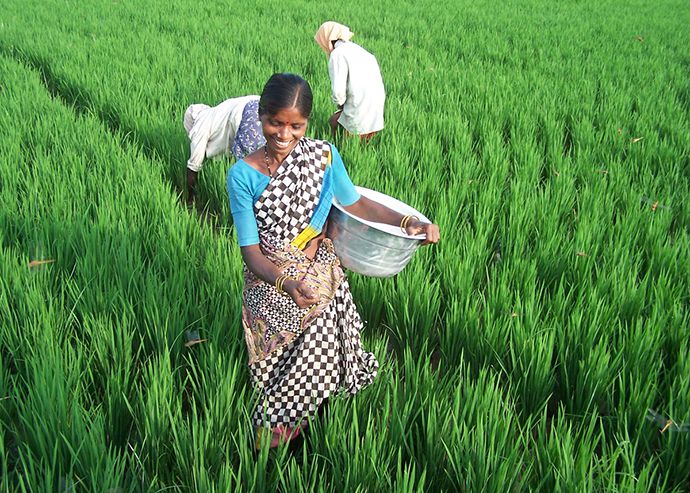 When India became independent in 1947, Jawaharlal Nehru, the country’s first Prime Minister, stressed the importance of ending poverty, ignorance, disease and inequality. In recent years, India has enjoyed consistently high rates of growth and steady improvement in human development. But a critical challenge remains for the world’s largest democracy. Despite growth and steady development, persistent poverty and inequality remain.
When India became independent in 1947, Jawaharlal Nehru, the country’s first Prime Minister, stressed the importance of ending poverty, ignorance, disease and inequality. In recent years, India has enjoyed consistently high rates of growth and steady improvement in human development. But a critical challenge remains for the world’s largest democracy. Despite growth and steady development, persistent poverty and inequality remain.
Millennium Development Goal (MDG) reporting reveals that India is on track to achieve target goals on poverty reduction, education and HIV at aggregate levels. However, much work remains to be done to reduce hunger, improve maternal mortality rates and enable greater access to clean water and sanitation. India must reduce social and geographic inequalities to make these goals achievable. As rising gender inequality continues to hamper progress, women are regularly excluded from social, economic and political domains. With 1.21 billion people, India’s lack of progress drastically impacts the overall success of the MDGs.
India’s relationship with NGOs
The Indian government has been applauded for their collaboration and partnerships with non-governmental organizations. The government provides funds, contracts and training opportunities for NGO activities in priority areas without undermining the NGOs’ autonomy and independence. This cross-sector collaboration enables more sustainable development with lasting impact.
Since Narendra Modi took over as Prime Minister in 2014, the government-NGO relationship has been tested. While Modi launched large and aggressive development projects in India, he is suspicious of the influence of foreign NGO’s. Greenpeace and Amnesty International had their finances frozen when the Indian government suspected the organizations were funding environmental activists who were working against nuclear power, GMO and coal mining initiatives. The government has since lifted the restrictions, but it’s now clear that development organizations that work outside Modi’s economic and industrial goals have an uphill battle.
Corporate social responsibility
India is the first country in the world to mandate corporate social responsibility. In 2014, the Indian government implemented new CSR guidelines requiring companies to spend 2% of their net profit on social development. While it sounds like a victory for development work, does it go far enough? Some ask if 2% is enough to make a difference while others worry that another tax will harm growing Indian corporations. Time will tell if this legislation will have real impact on poor people’s lives.
Today’s world is more interconnected and interdependent than ever before and it is in the interest of all nations to help India shape their own economic and social development. The eradication of poverty, disease and obstacles to education would ensure greater global security. While poverty, ill-health and lack of economic opportunity may not lead directly to conflict, crime or terrorism, they do create conditions that are hostile to peace and stability, leaving fragile countries vulnerable to conflict and other destabilizing forces.
GlobalWA members working in India
Committee for Children: Committee for Children creates research-based, social-emotional learning materials to help children succeed in school and in life. It creates a world in which children can grow up to be peaceful, kind, responsible global citizens and teaches skills that help children stay safe, manage their emotions, solve problems, avoid risky behavior and improve their academics. Committee for Children has taught millions of children in 70 countries, including India.
Construction for Change: Construction for Change believes that by building infrastructure, they are building opportunity. From schools to medical facilities to community buildings that house vocational training, their network is dedicated to alleviating poverty in the world’s most under-resourced areas. They partner with community-based NGO’s to develop infrastructure and recruit professional volunteers to manage the projects. Volunteers train and employ local workers and source local materials, allowing for significant investment in the regional economy. Construction for Change builds strong, sustainable, environmentally-sound facilities in communities throughout India.
EarthCorps: EarthCorps brings together passionate and hardworking young adults for a leadership training program in Seattle. Corp members learn leadership skills through working collaboratively, leading community volunteers and executing technical restoration projects along shorelines, trails and in forests. After the year-long program, these young leaders leave with the tools and skills to tackle the pressing issues of our time including climate change, pollution and ecological degradation. As part of its mission to build a global community of leaders through local environmental service, EarthCorps brings emerging environmental leaders from around the world, including India.
Global Business Center at the Michael G. Foster School of Business, University of Washington: The mission of UW’s Global Business Center is to develop global business expertise by hosting and sponsoring international education initiatives. Since 1990, the Center has been developing future business leaders with the knowledge, skill and vision needed to collaborate and compete across the globe. Transforming students into global business leaders starts in the classroom, but that is only the beginning. Global Business Center students can study abroad and take part in undergraduate and graduate studies programs in India.
Grameen Foundation: Grameen Foundation was founded in 1997 to help the world’s poor address their own unique needs. In India, Grameen is providing financial and technical support to some of the country’s leading and fastest-growing social enterprises and microfinance institutions. In 2011, they established Grameen Foundation India, a wholly owned subsidiary, to provide financial and information services for the poor. Through its Microsavings Initiative, they are working with Cashpor Microcredit, Ltd., in Varanasi, to broaden access to safe, flexible and convenient savings accounts. Their work with The Livelihoods School (part of the Basix group of companies) has created an integrated model of financial, livelihood and risk management services to help those living in extreme poverty.
IE3 Global: IE3 Global provides high-quality study abroad, internship, research, exchange and faculty-led programs to the students of their partner campuses throughout the Northwest and beyond. Students have the opportunity to volunteer and study in India.
iLEAP: iLEAP envisions a worldwide community of global citizens and innovative organizations who are connected through a values-based approach to leadership, are committed to building strong global partnerships for social change, and work together to realize potential and celebrate our common humanity. iLEAP hosts leadership and fellowship programs in India and invites fellows to lead their communities with a renewed clarity and commitment to who they are, what they do, and how they can change the world.
Initiative for Global Development: The Initiative for Global Development (IGD) drives poverty reduction by catalyzing business growth and investment in the developing world. The non-profit organization brings together an influential network of senior executives from sector-leading companies with the interest and capacity to make strategic investments in high-need, high-potential areas. IGD collaborates with Indian entrepreneurs to shape global connections and frontier market insights, and promotes business-driven development to create economic growth and opportunity.
Knowledge for People: Knowledge for People works with families and communities in India, Nepal, and Belize to promote greater awareness and acceptance of autism through outreach, education and advocacy. In many communities where autism is not understood or adequate resources are not available, individuals with autism and their families are marginalized. By collaborating directly with parents, educators, medical professionals and government officials, Knowledge for People helps bridge that gap, providing the support and information they need to help those with autism to thrive and foster a spirit of inclusiveness within their communities.
Landesa: Landesa partners with governments and local organizations to secure legal land rights for the world’s poorest families. Since 1967, Landesa has helped more than 100 million families in 35 countries gain legal control over their land. When families have secure rights to land, they can invest in their land to sustainably increase their harvests and reap the benefits — improved nutrition, health, education and dignity. Landesa helps India’s 15 million poor, rural, landless families obtain ownership of small plots of land as well as the opportunity to build better futures.
Mercy Corps: When a natural disaster strikes, an economy collapses, or conflict erupts, Mercy Corps is there. They respond immediately to meet urgent needs for food, water and shelter, and stay beyond the emergency to partner with communities for long-term recovery. Mercy Corps believes people have the power to transform their own lives when they have the right resources. Their strategy in India is to build the resilience of communities by increasing access to affordable basic services, supporting economic development and reducing risks associated with disasters. One example is Mercy Corps partnership with Starbucks/Tazo in Darjeeling and Assam. Details on the project and how the partnership has helped local communities can be found here. The Puget Sound Business Journal also featured them in an article which can be found here.
Microsoft: Microsoft is committed to serving the needs of people in communities worldwide. Fundamental to this commitment is the role we serve as responsible global corporate citizens. Microsoft works with more than 86,000 non-profits around the world each year, including organizations in India, to provide affordable access to the technology they need to support their work in local communities.
Mona Foundation: The Mona Foundation believes that the development of human resources and the key to poverty reduction lies in universal education and gender equality. Educated communities are healthier, more sustainable, and less vulnerable to economic volatility. The Mona Foundation has several projects in India, working specifically towards ensuring access to education technologies and initiating sustainable development by educating girls from rural and tribal areas.
MovingWorlds: MovingWorlds’ mission is to connect volunteers directly to inspiring startups, non-profits, incubators, schools or other social impact organizations that will benefit from their skills. In doing so, they tackle the “Talent Gap,” one of the leading barriers to global progress. MovingWorlds offers numerous volunteering opportunities in India to ensure communities can reach their full potential.
Oikocredit Northwest: As one of the world’s largest sources of private funding for microfinance, Oikocredit provides loans and investment capital to microfinance institutions, cooperatives, fair trade organizations and small-to-medium sized enterprises. They partner with numerous organizations in India and funds are used to fight poverty, promote fair trade and respect for our planet’s natural resources.
Oxfam: Oxfam is celebrating its 64th year of humanitarian service in India. Oxfam India believes in the ‘Right to Life with Dignity for All’. This is fulfilled by engaging empowered citizens to become active and supportive partners, advocating an effective and accountable State and making markets work for the underprivileged. Programs are currently active in the critical states of Assam, Bihar, Chhattisgarh, Jharkhand, Odisha, Uttar Pradesh and Uttarakhand. Working for the socially excluded and most marginalized communities by mobilizing them to campaign for greater economic and social reforms, Oxfam India is committed to five rights: Right to Sustainable Livelihood; Right to Social Services; Right to Life and Security; Right to be Heard and Right to an Identity.
PSI: PSI is a global health organization dedicated to improving the health of people in the developing world by focusing on the challenges they face including: a lack of family planning, HIV and AIDS, barriers to maternal health, and the greatest threats to children under five including malaria, diarrhea, pneumonia and malnutrition. PSI’s programs in India began in 1988 and seek to address the challenges of poverty, corruption, malnutrition and inadequate public healthcare.
SightLife: Millions of people around the world struggle to live with corneal blindness — the loss of sight caused by damage to the surface of the eye. At SightLife, they’re making more life-changing transplants possible. This is work that requires a continued collaboration between surgeons, technicians, hospital administrators, donor families and recovery partners across the developed and developing world. SightLife works in partnership with surgeons and health organizations in India and, by working together, they unlock brighter futures and help those who are in need see the world through new eyes.
Snow Leopard Trust: With programs and staff in five countries in Central Asia and support from around the world, the Snow Leopard Trust is a leader in the effort to secure the future of the endangered snow leopard. With researchers in the field year-round, they are working to develop the most effective conservation techniques. As the snow leopard is native to the Indian Himalayas, programs in the country include research, ecological conservation and working with local communities on building predator-proof corrals for domesticated animals and hosting nature education for local children.
Splash: Splash is a social justice organization committed to the poor, an international development agency disciplined around urban economies, a social enterprise dedicated to putting themselves out of business, and a safe water company focused on children. Kids living in urban poverty regularly have little control or no choice about the water they consume. Splash works with foreign governments and builds local businesses to create safe water projects, at scale, in resource poor cities. The puzzle pieces already exist. Splash reconfigures them to create a more efficient, effective and equitable product. Splash’s work in India is based in Kolkata, where they partner with local government to ensure clean water, clean hands and clean toilets for every public school in the city — 2,000 schools in total, serving 420,000 kids.
Unitus Seed Fund: Unitus Seed Fund is a $20 million seed-stage investment fund based in Bangalore and Seattle that invests in startups innovating for the masses in India. They help startups “prepare for growth” via seed funding and strategic and operating support, providing critical connections and securing growth capital.
Upaya Social Ventures: Upaya is building the businesses that create jobs and improve the quality of life for the “ultra poor” in India. Upaya supports high-potential Indian entrepreneurs, helping them develop and grow promising businesses with start-up capital as well as mentorship. In exchange, business owners promise to hire the poorest people in their region as jobs are created. To date, Upaya has invested in 10 businesses that have collectively created over 2,000 jobs.
U.S. Fund for UNICEF: The U.S. Fund for UNICEF supports UNICEF’s work, and other efforts in support of the world’s children, through fundraising, advocacy and education in the United States. UNICEF does whatever it takes to save and protect the world’s most vulnerable children. Recognizing that the health, hygiene, nutrition, education, protection and social development of children are all connected, UNICEF works to ensure that the children of India not only survive, but thrive.
Water1st International: Water1st was started in 2005 by a handful of professionals with solid experience in the water, sanitation and fundraising sectors. Their focus was simple: to build an organization from the ground up with the ability to consistently implement high-quality water and sanitation projects that provide permanent solutions for the world’s poorest communities. Water1st works with local organizations in India to assist rural communities drill deep wells, install hand-pumps and build household toilets.
World Justice Project: The World Justice Project is an independent, multidisciplinary organization working to advance the rule of law around the world. Effective rule of law reduces corruption, combats poverty and disease, and protects people from injustices large and small. It is the foundation for communities of peace, opportunity and equity — underpinning development, accountable government, and respect for fundamental rights. Efforts in India include programs that ensure the legal protection and autonomy of women, children and the urban poor.
World Vision: World Vision is a Christian humanitarian organization dedicated to working with children, families and their communities worldwide to reach their full potential by tackling the causes of poverty and injustice. World Vision provides emergency assistance to children and families affected by disasters and conflict, partners with communities for long-term solutions to alleviate poverty, and advocates for justice on behalf of the poor. Through sponsorship of children, World Vision is committed to partnering with the people of India to improve their lives today and to help enact sustainable solutions for the future.
Featured Organization
SightLife
By Kaitlin Marshall
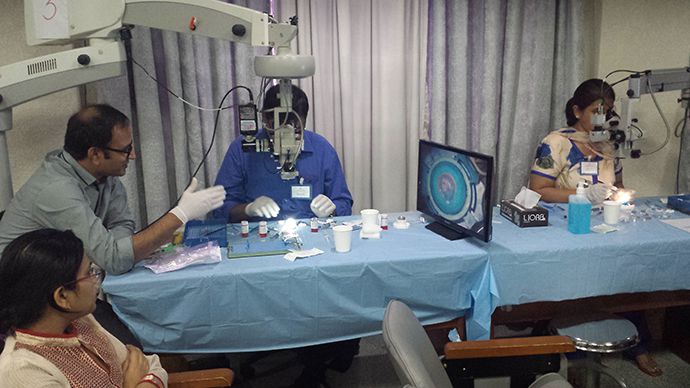 Millions of people throughout the world suffer from corneal blindness — the loss of sight caused by damage to the surface of the eye. Those living in developing countries are particularly vulnerable to the devastating effects of blindness. It can rob adults of economic autonomy as job opportunities for the blind in the developing world are often nonexistent. Children who can’t see the blackboard in school often receive little support and drop out. Blind adults and children can become isolated from their communities, and this often leads to feelings of shame and inadequacy.
Millions of people throughout the world suffer from corneal blindness — the loss of sight caused by damage to the surface of the eye. Those living in developing countries are particularly vulnerable to the devastating effects of blindness. It can rob adults of economic autonomy as job opportunities for the blind in the developing world are often nonexistent. Children who can’t see the blackboard in school often receive little support and drop out. Blind adults and children can become isolated from their communities, and this often leads to feelings of shame and inadequacy.
Corneal blindness, however, is a treatable condition and a corneal transplant is the solution. But a shortage of corneal tissue is keeping millions of adults and children in the dark. SightLife, which runs the largest eye bank in the world, applies its funds and subject matter expertise to increase the number of corneal transplants in the developing world. SightLife’s focus is to build a sustainable local infrastructure covering policy and advocacy work, increasing the capability of eye banks and corneal surgeons, and exploring innovative technologies to change the landscape of patient follow-up care in India, and greater Asia, through providing funding, grants and consultations.
In the United States, there is no waiting list for corneal tissue as the supply is consistent with demand.
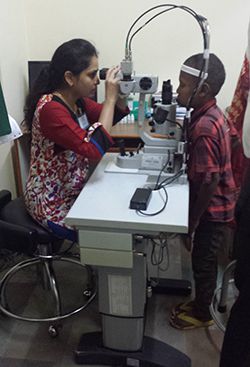 In developing countries, though, a myriad of logistical and social barriers keep corneal patients from having their sight restored. SightLife works to increase the quality of transplants for corneal patients by providing free tissue and free training for corneal surgeons. To help ensure those in need receive high quality transplants, SightLife trains staff at local eye banks so that they can “eye bank better.”
In developing countries, though, a myriad of logistical and social barriers keep corneal patients from having their sight restored. SightLife works to increase the quality of transplants for corneal patients by providing free tissue and free training for corneal surgeons. To help ensure those in need receive high quality transplants, SightLife trains staff at local eye banks so that they can “eye bank better.”
“Eye banks in developing countries are often small, adjunct rooms in state hospitals,” explained Claire Bonilla, SightLife’s Chief Global Officer. One overworked surgeon is in charge of the entire corneal transplant process. This includes finding and collecting corneal tissue, performing the graft and overseeing follow up care. Bonilla and her team push partner eye banks to “think about having an eye bank manager [and] a full staff so that you can start to move higher volumes through specialization…and the surgeon can focus on surgery.” The organization has had great success in India. SightLife’s partner banks have averaged an approximate 30-40% increase in transplants provided per year.
Due to the shortage of corneal tissue, there are still people who are unable to receive corneal grafts even with SightLife helping eye banks increase their production. This is why SightLife has started focusing more on advocacy. “We have to think about the entire ecosystem: advocacy, policy and building up the capabilities of eye banks so that we can get more tissue,” said Bonilla. The organization wants to raise general awareness of corneal blindness, encourage people to become donors and push the government to help regulate donations, creating a favorable environment for eliminating blindness.
Bonilla explained that there are two primary factors that contribute to a lack of corneal tissue in countries such as India — people’s misconceptions about organ donation and a lack of effective government policy to promote the collection of corneal tissue. “Religious beliefs are sometimes a factor and we often have to educate to overcome myths,” said Bonilla. Even if a person wants their eyes to be donated when they die, their wishes aren’t always fulfilled. “If you choose to donate your eyes as a citizen of India or China, there’s no way to record that consent. Whoever recovers your body at the hospital can deny it.”
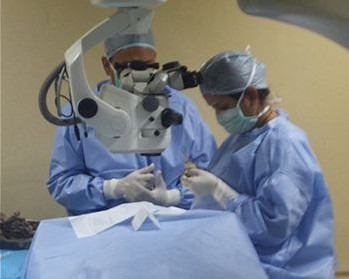 SightLife created the Hospital Cornea Recovery Program (HCRP) to help with the collection of corneal tissue in hospitals. Hospital workers in India frequently fail to notify eye banks of deaths, which leads to numerous missed opportunities for corneal tissue donations. SightLife pays for eye banks to employ eye donation counselors who work in high mortality hospitals. “When there is a death, the eye donation counselor is notified. Then, the eye donation counselor reaches out to the family and talks to them about the benefits of giving sight to another,” explained Bonilla. “Out of a great loss, sight for another can be gained.” Once the counselor gets consent from the family, the deceased’s medical records are reviewed and a recovery technician takes the corneal tissue. Due to the success of programs such as the HCRP, SightLife’s partner eye banks are able to restore sight in more than 1000 men, women and children globally every month.
SightLife created the Hospital Cornea Recovery Program (HCRP) to help with the collection of corneal tissue in hospitals. Hospital workers in India frequently fail to notify eye banks of deaths, which leads to numerous missed opportunities for corneal tissue donations. SightLife pays for eye banks to employ eye donation counselors who work in high mortality hospitals. “When there is a death, the eye donation counselor is notified. Then, the eye donation counselor reaches out to the family and talks to them about the benefits of giving sight to another,” explained Bonilla. “Out of a great loss, sight for another can be gained.” Once the counselor gets consent from the family, the deceased’s medical records are reviewed and a recovery technician takes the corneal tissue. Due to the success of programs such as the HCRP, SightLife’s partner eye banks are able to restore sight in more than 1000 men, women and children globally every month.
SightLife has had great success in India and is now strategizing on how to increase the organization’s presence in China. While their primary mission is advocating to increase the supply of available corneal tissue in countries around the world, they also want to restore every corneal patient’s sight so that the person can once again provide for their families, contribute to society and live up to their full potential. “We help facilitate about 1,000 transplants every month. When I see those numbers, it’s not just the metric of 1,000 transplants,” said Bonilla. “It’s 2,000 hands being enabled. It’s 1,000 homes where we helped changed the dynamic and put more food on the table. And that’s pretty wonderful.”
Changemaker
Chris Jochnick, President & CEO, Landesa
By Kaitlin Marshall
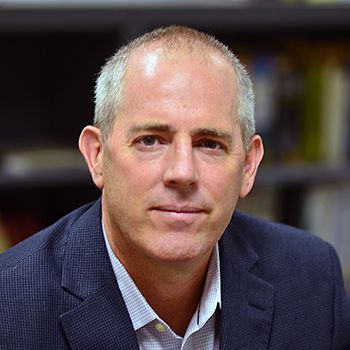 Many of the world’s poorest people, despite relying on agricultural labor to survive, don’t own their own land. A lack of formal government regulation of land ownership in developing countries can leave people vulnerable to losing their land to conflict, foreign corporations or any one of various other entities. And their vulnerability means they have less incentive and opportunity to invest in their land to improve their harvests and their lives.
Many of the world’s poorest people, despite relying on agricultural labor to survive, don’t own their own land. A lack of formal government regulation of land ownership in developing countries can leave people vulnerable to losing their land to conflict, foreign corporations or any one of various other entities. And their vulnerability means they have less incentive and opportunity to invest in their land to improve their harvests and their lives.
For more than four decades, Global Washington member Landesa has worked with governments and other organizations to create pro-poor laws, policies and programs that strengthen land rights of women and men, families and communities across the globe. To date, Landesa has helped more than 100 million families obtain ownership of land or secure rights to their property.
Chris Jochnick recently joined Landesa as the organization’s CEO, bringing with him a wealth of experience working on social and economic rights – including land rights. A Harvard Law School graduate, Jochnick practiced human rights law for ten years and then worked as a corporate attorney on Wall Street before transitioning into global development. Prior to joining Landesa, Jochnick was with Oxfam America for ten years, as the director of Oxfam’s private sector department.
Landesa describes land as a foundation that allows other development efforts to gain traction. Jochnick firmly believes in this philosophy. “Today, the majority of people living in poverty depend on land,” said Jochnick. “[However], most of them don’t have formal claims to that land. Working in a way that moves the needle on securing land rights for those people who are often the most marginalized is a tangible way of making progress on a whole range of development outcomes.”
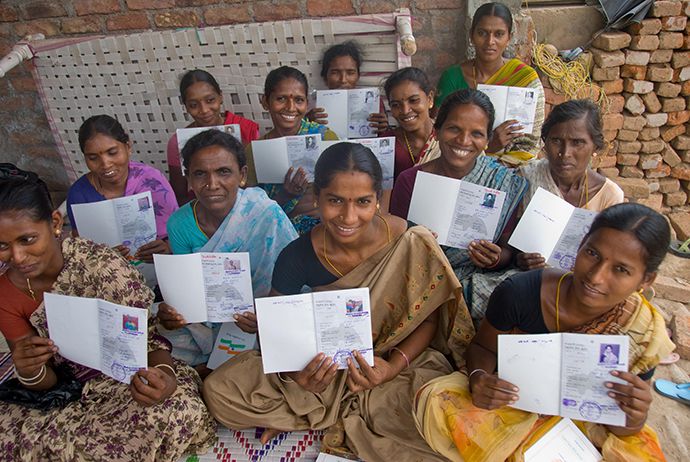
Throughout his career, both in law and the non-profit sector, Jochnick has worked with the development, human rights and environmental communities. Until recently, according to Jochnick, none of these communities gave the issue of land rights sufficient attention. “Land is one of those overlooked issues. Land rights can act as a gateway right that give women and men access to other rights.” said Jochnick. “This is something Landesa has long recognized, and others are now coming to appreciate.”
Jochnick is thrilled to be taking over as CEO of Landesa at a time when more people are recognizing the significance of land rights within the global development sector. “There are so many opportunities now for groups working on land to expand their work,” said the new leader. Landesa is poised to leverage the rising attention to land rights to form new and deeper partnerships with governments, civil society organizations and companies. “[Land rights] is a field that is ripe for new attention, and Landesa offers a perfect platform for that,” said Jochnick. His extensive experience developing partnerships with the private sector will help Landesa move forward in finding new avenues to protect land rights.
At Oxfam, Jochnick initiated a variety of partnerships with Fortune 500 companies and organized collaborative advocacy initiatives. These included the “Behind the Brands” campaign which put pressure on the world’s largest food and beverage companies to ensure they were not displacing families and communities throughout their supply chains. Many countries have no or weak land-related legal infrastructure to regulate land ownership. For example, 90 percent of the land in sub-Saharan Africa is undocumented. Foreign companies who obtain a permit from the government have no way of knowing if the land they are using belongs to someone else, and may unwittingly destroy someone’s source of livelihood. Prior to the Behind the Brands campaign, many companies failed to recognize land as an issue. Corporations increasingly recognize that ensuring they are not displacing communities is a necessary good business practice.
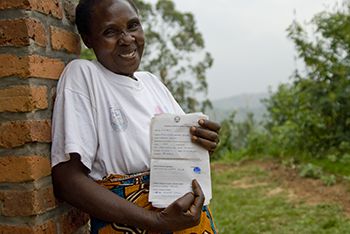 While Landesa has traditionally focused on working to create impact at scale by partnering with foreign governments, it has since expanded to pursue partnerships in the private sector. Companies “are aware of the fact that [land] conflicts are likely to plague them as they move into these countries and want to get ahead of that,” explained Jochnick. “I’ve worked with them in the past to move companies to recognize that there is an issue there, that there is a problem that threatens their bottom line, and then move them to make commitments to land rights.” Landesa’s expertise is valuable to companies that need assistance figuring out how to interact with foreign governments and communities. “There’s a real opportunity to work with some of those companies both in terms of their own businesses and in trying to push for greater formalization of land rights and recognitions of the land rights of traditional holders,” said Jochnick.
While Landesa has traditionally focused on working to create impact at scale by partnering with foreign governments, it has since expanded to pursue partnerships in the private sector. Companies “are aware of the fact that [land] conflicts are likely to plague them as they move into these countries and want to get ahead of that,” explained Jochnick. “I’ve worked with them in the past to move companies to recognize that there is an issue there, that there is a problem that threatens their bottom line, and then move them to make commitments to land rights.” Landesa’s expertise is valuable to companies that need assistance figuring out how to interact with foreign governments and communities. “There’s a real opportunity to work with some of those companies both in terms of their own businesses and in trying to push for greater formalization of land rights and recognitions of the land rights of traditional holders,” said Jochnick.
When asked about his goals for Landesa, Jochnick explained he hopes to expand the organization’s global reach beyond the current focus on India, Africa and China. Jochnick and his team are ready to capitalize on the momentum in the development community and bring together those who have acknowledged the need for a commitment to protecting land rights. “Moving these commitments from principals and standards into actual practice requires a unified and global push, and Landesa wants to be part of that effort,” said Jochnick. By pursuing networks between NGOs, companies, governments and communities, Jochnick is readying Landesa to be a catalyst for global work on land rights and an international leader in the development community.
Welcome New Members
Please welcome our newest Global Washington members. Take a moment to familiarize yourself with their work and consider opportunities for support and collaboration!
3rd Creek Investments, Inc.
3rd Creek is a consortium of organizations dedicated to providing exceptional service, accountability and social responsibility. They provide investment advisory services, accounting assistance, venture capital funding, philanthropic grants and consulting services. Whether it is managing private investment portfolios or funding charitable projects worldwide, 3rd Creek believes in creating positive outcomes and sustaining them over the long run. www.3rdcreek.com
International Leadership Academy of Ethiopia
The International Leadership Academy of Ethiopia (ILAE) is a college preparatory day school located in the Lafto/Lebu area of Addis Ababa for 400 students in grades 9-12. ILAE opened its doors in September 2013 with an inaugural class of 24 highly-capable, underserved ninth grade students, and will add an additional ninth grade class each successive year. http://ilacademy.org/
NetHope
NetHope enables humanitarian organizations to better serve the developing world through smarter use of technology. They help member organizations collaborate, innovate and leverage the full potential of information and communications technology to support their causes. NetHope focuses on five key areas: connectivity, field capacity building, emergency response, shared services and innovation for development. www.nethope.org
Volunteers for Sustainable Development USA
Volunteers for Sustainable Development USA fundraises to support underprivileged children and AIDS orphans in Uganda
Member Events
September 23: World Trade Center Seattle // Women in Business
September 23: Washington State University // International Career Fair
September 26: MED25 // Fall Fundraiser
October 3: EarthCorps // REVIVE Annual Fundraiser
October 9-11: University of Washington // Human Right to Family Planning Conference
October 10: Mona Foundation // 16th Annual Celebration Dinner
October 24: NPH USA // Gala Dinner and Auction
Career Center
Highlighted Positions
Program Director – Literacy Bridge
OpenLMIS Community Manager – VillageReach
Technology Director & Group Lead – VillageReach
For more jobs and resources, visit https://globalwa.org/resources/careers-in-development/
GlobalWA Events
September 16: New Member Orientation
September 17: Learn More: Microsoft Giving Campaign
September 17: ED Roundtable
December 10: GlobalWA 7th Annual Conference